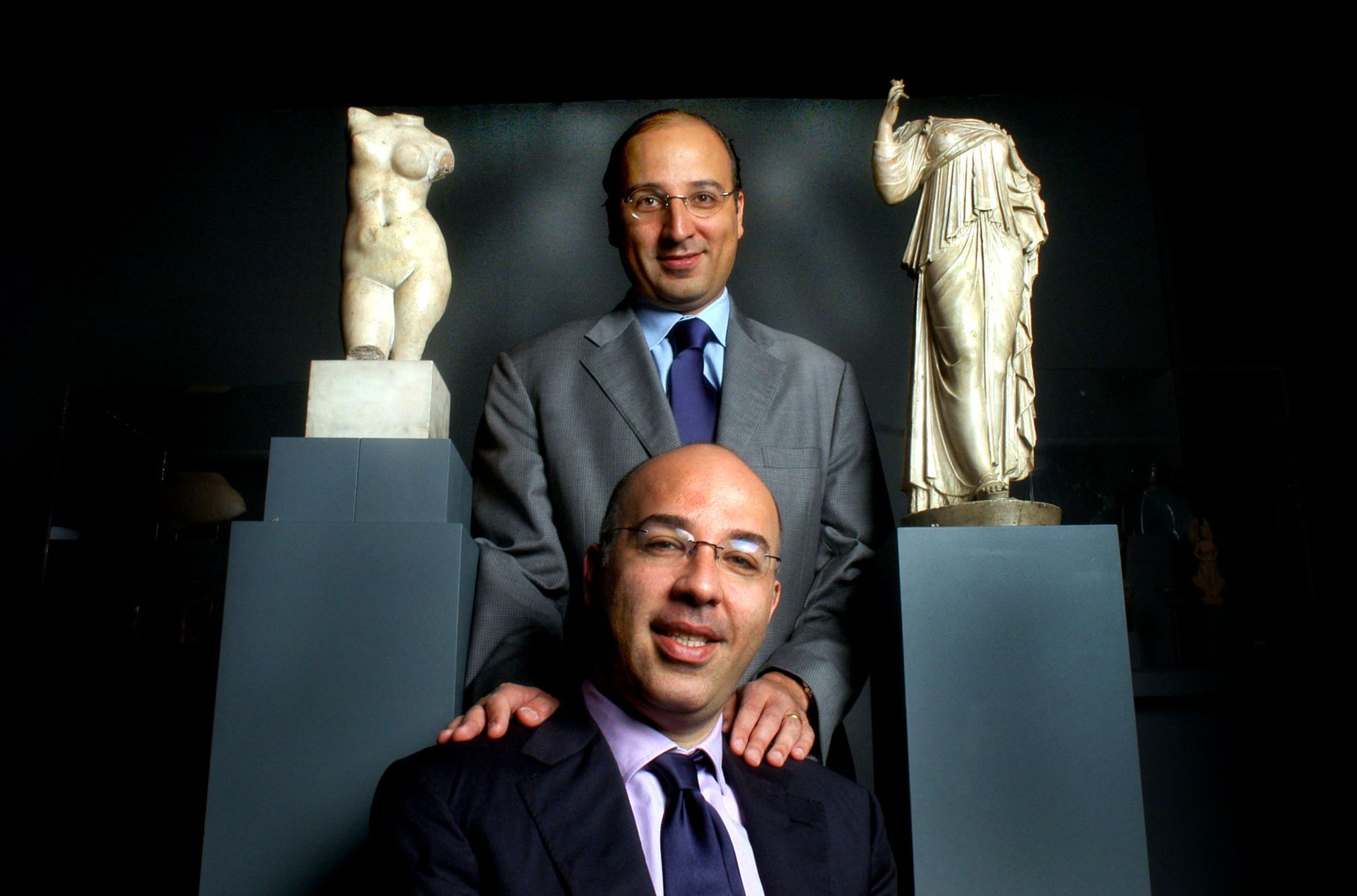Sheikh Hamad Bin Abdullah al-Thani of Qatar has won a court case against the New York- and Geneva-based Phoenix Ancient Art gallery over an allegedly forged statuette of the goddess Nike purportedly dating from the fourth century AD. The gallery tells The Art Newspaper that it is appealing the ruling.
According to The Times, the sheikh brought a civil claim at the High Court in London alleging that the Nike statue was a forgery and that the provenance supplied by Phoenix for another antiquity—the Head of Alexander the Great as Herakles (dated between 3rd and 1st century BC)—and a Phalera, a small decoration worn by Roman soldiers, was false.
Phoenix, which is run by the brothers Hicham and Ali Aboutaam, has supplied antiquities to museums such as the Getty Museum in Los Angeles and the Metropolitan Museum of Art in New York. The gallery insists the disputed items are genuine, stressing that it has supplied 23 antiquities to the Al Thani collection over the years. Al Thani is the chief executive of Qatar Investment and Project Development Holding Company (QIPCO).
In a lengthy statement, Phoenix Ancient Art says that “the court's decision was based on a technical hurdle relating to disclosure which resulted in the exclusion of all of Phoenix's evidence, testimony, and documents… the court accepted QIPCO's argument for Phoenix to undergo a prohibitively costly document-by-document legal review.” Phoenix says this document review would cost around £1.5m.
Phoenix adds that the court had struck out its “comprehensive defence” including museum exhibition records from “one of the biggest museums in the world” and “scientific authentication reports from the most respectable lab in the world including 14 samples on one of [the antiquities] alone”.
According to the legal periodical Solicitor's Journal, "the judgement reflects the judiciary's increasingly stringent stance on disclosure issues, particularly in cases involving high-value artefacts and the potential for fraud."

Ali Aboutaam, front, and brother Hicham Aboutaam of Phoenix Ancient Art
Photo by Alastair Miller/Bloomberg via Getty Images
The court judgment is the latest twist in a long-running legal saga. In April 2022, Al Thani lost his appeal whilst attempting to bring a lawsuit against Phoenix Ancient Art for selling him the allegedly fake statues.
Al Thani bought the Head of Alexander the Great as Herakles for $3m in 2014. He subsequently approached Phoenix with concerns that the work, and the statuette of the goddess Nike bought later for $2.2m, were fake. Al Thani also raised concerns in early 2018 about the authenticity of the Nike statue after reportedly receiving a report claiming that microscopic inspection detected modern machine tool markings and machine polishing.
The subsequent lawsuit, filed in London, hinged on the timing of the claim, which was first filed in 2020 and included a request for a time extension. After a judge decided not to grant a time extension, High Court judge William Davies J went on to confirm this decision in 2021; in 2022, Al Thani lost his appeal.
In the latest court ruling in London on 11 April, the judge gave summary judgment against Phoenix, the brothers and a retired Swiss antiques dealer, Roland Ansermet, in relation to the Nike statue for the claim based on fraud, dishonesty and fraudulent misrepresentation, The Times reported. He also gave judgment for the other two items on the basis that the gallery had no real prospect of successfully defending against the claim.
“Phoenix Ancient Art will continue to explore all legal avenues to challenge this decision and defend its reputation in the art world,” the gallery concluded in its statement.
In 2023, Ali Aboutaam received an 18-month suspended jail sentence from a court in Geneva for violating the law on the transfer of cultural properties and use of forged provenance documents.
UPDATE 17 April: QIPCO supplied a statement after publication that stated: "QIPCO is pleased that the court has awarded summary judgment in respect of its claims in fraud, dishonesty and fraudulent misrepresentation against Phoenix and each of the individual defendants. QIPCO’s claims concern three objects it purchased from Phoenix: a marble head of Alexander the Great, a small statue of the Greek goddess Nike, and an eagle phalera. The court’s judgment follows many years of proceedings during which the defendants have repeatedly attempted to frustrate the legal process, including breaching numerous court orders and most recently, according to the court’s judgment, a 'deliberate, serious, prolonged and inexcusable' refusal to provide disclosure. Now that it has obtained judgment, QIPCO will take such steps as are necessary to recover the benefit of the judgment from the defendants."


